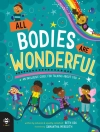Neuropsychological assessments are now widely used to identify learning disabilities and shape educational interventions. However, many special education teachers, speech therapists, lawyers, pediatricians, psychiatrists, rehabilitation counselors, and a host of other ‘helping’ professions know very little about how to interpret and act on information contained in neuropsychological assessments. The neuropsychological evaluations discussed in this text help shed light on a wide variety of psychiatric and medical conditions, including learning disabilities, severe and persistent mental illness, traumatic brain injury, neuropsychiatric disorders with accompanying chronic cognitive deficits, and acquired or congenital neurological conditions.
This book emphasizes the breadth and depth of neuropsychological assessments and the many practical uses they have, such as treatment planning, diagnosis, interventions, and many more. The authors offer practical guidance on neuropsychological testing and assessment across the lifespan, from pediatric through geriatric patients. The book is designed specifically for those professionals with little to no training in neuropsychology that need to apply knowledge gleaned from neuropsychological assessments.
Key topics discussed:
- Neuropsychological testing and psychoanalysis
- Using neuropsychological instruments in school settings: possibilities and limitations
- Using neuropsychological information in vocational rehabilitation planning
- Neuropsychology and speech/language therapy
表中的内容
‘
PART I. INTRODUCTION TO NEUROPSYCHOLOGY
1. What is Neuropsychology?
Gerald Goldstein
2. What does Neuropsychology Mean to Patients and their Families?
Thomas A. Hammeke and Robert F. Newby
PART II. NEUROPSYCHOLOGICAL TESTING FOR CHILDREN AND ADOLESCENTS
3. An Introduction to Pediatric Neuropsychology
Nadia Webb
4. An Integrated Neuropsychological-Psychodynamic Approach to the Evaluation and Treatment of Preschool Children
Lois M. Black
5. Neuropsychological Testing and Psychoanalysis
Martha Pierce and Ayame Takahashi
6. Neuropsycholgy and Child Psychiatry
Lynn Grush, Ellen B. Braaten, and Brian Willoughby
7. Neuropsychology and Pediatric Medicine
Ellen B. Braaten and Ellen O’Donnell
8. Neuropsychology and Speech/Language Therapy
Christine L. Castillo
9. Using Neuropsychological Instruments in School Settings: Possibilities and Limitations
David L. Wodrich, Ara J. Schmitt, and Joy Goldberg
10. Integrating Neuropsychological Principles with Response to Intervention for Comprehensive School-based Practice
James B. Hale, Catherine A. Fiorello, and Rebecca Thompson
11. Neuropsychology and Special Education Law
Melody Nichols Dilk
PART III. NEUROPSYCHOLOGICAL TESTING FOR ADULTS
12. Neuropsychological Evaluation of Adults with Psychiatric Disorders
Ashley A. Gorman and Wilfred G. van Gorp
13. Neuropsychology and Adult Psychiatry
Molly Colvin Putnam and Mark A. Blais
14. Neuropsychology and Neurology
Dario J. Englot and Marisa Spann
15. The Neurorehabilitation Psychologist
Mary R. Hibbard, David E. Layman, and Robert K. Stewart
16. Using Neuropsychological Information in Vocational Rehabilitation Planning: Perspectives for Clinical Practice
Robert T. Fraser, Erica Johnson, and Jay M. Uomoto
17. Neuropsychological Testing in the Geriatric Patient
Kristina F. Zdanys and Rajesh R. Tampi
关于作者
Elisa Mambrino, Ph D, is a psychologist licensed in Connecticut and New York. Her clinical training, experience and interests focus upon individualized psychological, psychoeducational and neuropsychological assessment, primarily with children, adolescents and young adults.












